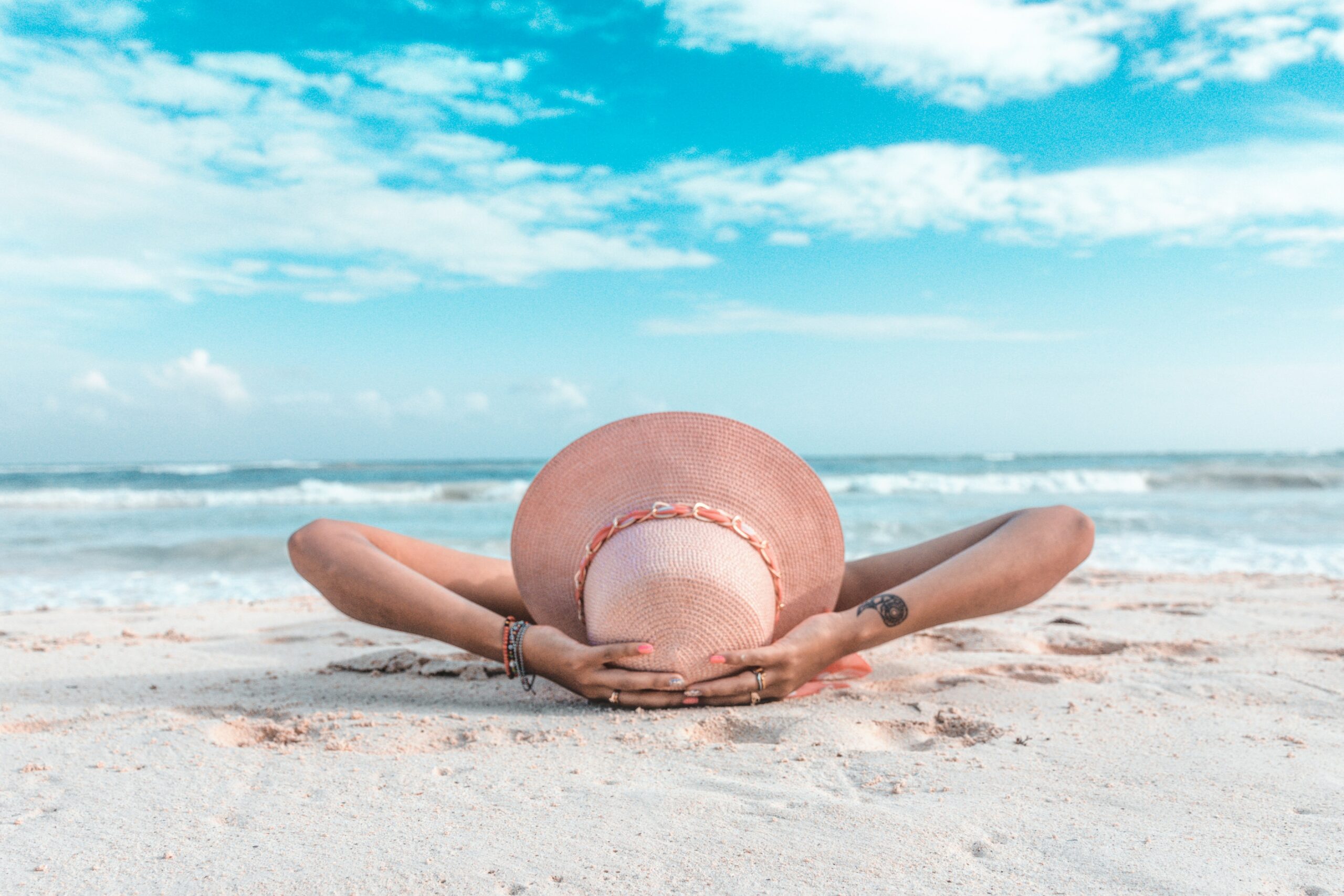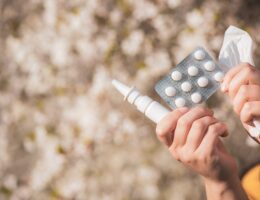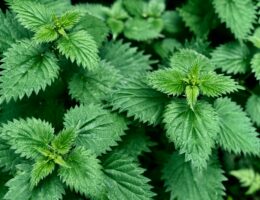Seasonal allergies and vacation time don’t go well together. The mere thought of allergy symptoms can ruin the idea of a perfect vacay. And when your allergy symptoms hit hard, they won’t leave you in the mood for many adventures.
In the spring, you have allergy triggers such as tree and grass pollen, and in the fall, you have ragweed, other weed pollens, and outdoor mold. So, if you suffer from multiple allergies, timing your trips can be challenging.
With this in mind, you might wonder how to stop allergies. The situation isn’t helpless, and there are a few tricks to managing them—even if your trip is during the allergy season.
Below are some actionable tips on how to stop allergies from ruining your vacay. They include tips on what to do before your trip, what conventional and alternative treatments to consider, and how to minimize allergen exposure during your trip.
Before Your Trip
The best way to save the day (or should we say, your days off) is to stay a few steps ahead of your allergy symptoms. Knowing your treatment options and using them before your trip will lessen the usual discomfort of allergies. Being prepared is what gives you the upper hand.
Below are some conventional and alternative treatments that will help you gain control over your allergies.
Conventional Treatments
Antihistamines
Antihistamines are most commonly prescribed as a conventional treatment for seasonal allergies. They’re used to treat anything from hay fever and conjunctivitis to urticaria and insect bites.
You can buy most antihistamines from pharmacies, and they come in tablets, capsules, eye drops, and nasal sprays. They’re also used as a medicine for motion sickness and short-term insomnia treatment.
Nasal Steroid Sprays
Nasal steroid sprays help treat allergic rhinitis—which consists of symptoms such as sneezing, congestion, and a runny nose.
Nasal steroid sprays like Flonase and Nasacort are prescribed alongside antihistamines to help bring down the inflammation in your nasal passages.
Decongestants
Decongestants are a common therapy for treating nasal congestion in people with hay fever and those suffering from colds, flu, and sinusitis.
They relieve sinus pressure and reduce swelling of the blood vessels in your nose—opening your airways so you can breathe more easily. Aside from the commonly used nasal sprays, decongestants are also available as oral medications, but doctors don’t recommend using them for more than a few days.
Alternative Treatments
You may have been prescribed nasal sprays and antihistamines for your allergy in the past—but what if they didn’t work for you? What if the antihistamines made you feel drowsy? What if your decongestants only made your symptoms worse?
Luckily, there are alternatives to prescription medications for natural allergy relief, and there are all sorts of different reasons why you’d want to consider them. For example, corticosteroids and topical nasal decongestants such as Afrin (oxymetazoline), Neo-Synephrine (phenylephrine), and Privine (naphazoline) aren’t recommended if you have high blood pressure. [1]
Similarly, over-the-counter antihistamines such as chlorphenamine, cinnarizine, and hydroxyzine can make you feel tired to the point that they affect your judgment and reaction speed. [2]
And honestly, what use is there in a holiday if you spend it feeling drained and exhausted?
Still, there must be something to help you avoid allergies during your vacay. Below are a few alternative treatment options to consider.
Quercetin
Quercetin is a bioflavonoid naturally found in fruits and veggies, but when used in the form of supplements, it can help reduce allergy symptoms. Scientists contribute the allergy-fighting effect of quercetin to the compound’s ability to stabilize the release of histamine.
However, quercetin also seems to inhibit mast cells which are responsible for triggering allergic reactions. [3]
Bromelain
Bromelain is a protein-digesting enzyme naturally found in pineapples. Preliminary studies have found it can be used as an effective anti-allergy defense due to its anti-inflammatory activity. A previous study reported improvements in Total Rhinoscopy Score (TRS) and Total Symptom Scores (TSS) in patients with chronic rhinosinusitis. [4]
Putting quercetin and bromelain together can produce an enhanced treatment effect in people with allergies. Douglas Labs have done this successfully by doubling the effects of quercetin and bromelain in their Quercetin-Bromelain Complex. The supplement helps ease allergy-related symptoms such as sneezing and itchy eyes.
Pro tip: It’s important you know how critical the so-called pretreatment is. Waiting until your symptoms set in to start treatment is not an option if you want to take charge of your allergies. Taking allergy medications around two weeks before peak season is recommended to ease symptoms, prevent discomfort, and lessen the severity of your allergic reaction. [5]
How to Minimize Allergen Exposure During Your Vacay?
The next thing on your agenda is to do what you can to avoid allergens causing your body’s immune system to overreact.
Making minor adjustments to your travel plans can be beneficial. These include adjusting your indoor environmental conditions, planning your outdoor activities, and ensuring you have some quality sleep time.
Minimizing Your Indoor Exposure
You can make certain adjustments to your living space while on holiday to help keep your symptoms at bay. Below are some general rules of thumb:
- Use air conditioning to clean indoor air.
- Make sure to close the windows when pollen counts are high.
- Take a portable dehumidifier with you. High humidity can increase the indoor concentration of allergens making your symptoms worse. A dehumidifier will keep allergens and mold at bay.
- Dry your laundry indoors instead of outside when pollen counts are high.
- Make sure to check cleanliness scores before booking a hotel/rented space. You should vacuum your rented space twice a week.
Minimizing Your Outdoor Exposure
Instead of letting your allergy make you miserable during your vacay, do a bit of planning. Knowing what worsens your allergies will help you develop a solid avoidance plan to manage your symptoms better.
Consider the following self-protection steps:
- Monitor pollen forecasts daily by checking current pollen levels to know when to limit your outdoor activity. You can do this via TV, local newspaper, or check online on Pollen.
- If high pollen counts are forecasted, take your allergy meds before your symptoms start.
- Understand that pollen counts will increase during warmer, drier days and that rain washes pollen from the air, so counts should be lower on cooler, wet days. Although this may be counterintuitive, you can reserve cooler days for outdoor activities.
- Avoid outdoor activity in the early morning hours when pollen counts are highest. Leave the outdoor fun for later and use your mornings for visiting indoor venues and museums.
- Use an allergen barrier balm to block pollen and other allergens. These are typically applied around the edge of your nostrils to keep allergies away.
- Wear glasses or sunglasses when outdoors. This should keep pollen out of your eyes.
- Have a natural throat spray like Biocidin TS Throat Spray at hand for SOS situations when nothing else helps your sore throat and discomfort.
Getting a Good Night’s Sleep
Allergies can keep you awake at night, making your vacation all the more complicated.
In fact, researchers found that people with allergic rhinitis are more likely to suffer from lower-quality sleep than the general population. [6] This is due to congestion which can prevent your body from getting enough rest.
Below are a few tips on surviving the night so you can be your best self the next day.
| Tip | Key Advantages |
| Change your clothes after being outside and shower before bed | Prevents you from taking any pollen particles to bed with you |
| Keep the windows closed | Prevents pollen from entering your living space and gives you a better chance at a restful night |
| Make sure bedding is frequently washed | Prevents allergens from sticking to your sheets and pillowcases |
| Sleep propped up on pillows | Helps prevent a post-nasal drip and helps ease a stuffy nose |
| Use an air purifier | Reduces your exposure to allergens at night |
Need an SOS Vacay Treatment? Do the Nasal Rinse
A nasal rinse can be your go-to SOS treatment to help relieve your allergy symptoms when they start acting up during your travel. It’s a simple, easy, and inexpensive way to deal with seasonal allergies, so here’s how to do it.
Purchase a ready-made saline solution and use an irrigation device (it comes in the package) to rinse your nasal passages from any allergy-causing substances. The rinse can help relieve nasal congestion.
Use only distilled, sterile, or previously boiled water to dissolve your saline solution; this will reduce the risk of infection.
What If You Experience Severe Allergic Reactions During Your Trip?
In the event of severe allergy reactions, there are some newer approaches and therapies to try. One of those is immunotherapy, often called desensitization or allergy shots.
The desensitization process involves exposing the body to increasing doses of allergens that set off your allergy symptoms. This is done over a period of time and in controlled medical conditions and is limited to cases of severe allergic rhinitis and severe cases of certain food allergies. The end game here is to reduce your body’s reaction to allergens.
That said, contact your doctor to see if immunotherapy is an option. If you suspect you have a severe allergic reaction, visit a doctor’s office ASAP.
Take Charge of Both Your Seasonal Allergies AND Your Vacay
The best way to ease allergy symptoms is by avoiding your allergy triggers, and yes, this is possible even when you’re traveling. So, instead of letting your allergy get the best of you, let it be the other way around—take charge of the situation yourself.
By avoiding your allergens smartly and using the right allergy treatment, you’ll give your body the best chance of defense. Knowing about the possible alternative treatments will give you more options and may reduce your chances of feeling sleepy while on allergy medications.
That said, check out our online store for premium nutritional supplements to help with your allergies. Want to kick it up a notch in the allergy self-management department? The tips below will help you do just that.
NOTHING IN THIS WEBSITE IS INTENDED AS, OR SHOULD BE CONSTRUED AS, MEDICAL ADVICE. ANY HEALTHCARE AND/OR NUTRITIONAL MATERIAL CONTAINED IN THIS WEBSITE IS FOR CONSUMER INFORMATIONAL AND EDUCATIONAL PURPOSES ONLY. SUCH MATERIAL IS NOT INTENDED AS MEDICAL ADVICE FOR CONDITIONS OR TREATMENT, NOR IS IT INTENDED AS A SUBSTITUTE FOR A MEDICAL EXAMINATION BY A HEALTHCARE PROFESSIONAL. CONSUMERS SHOULD CONSULT THEIR OWN HEALTH CARE PROFESSIONALS FOR INDIVIDUAL MEDICAL RECOMMENDATIONS.
Resources
[1] https://blog.ochsner.org/articles/medications-to-avoid-if-you-have-high-blood-pressure/
[2] www.nhs.uk/conditions/antihistamines/
[3] https://pubmed.ncbi.nlm.nih.gov/21802918/
[4] https://pubmed.ncbi.nlm.nih.gov/24273953/
[5] https://acaai.org/news/want-more-than-romance-this-valentines-day-halt-spring-allergy-symptoms-before-they-start/
[6] https://pubmed.ncbi.nlm.nih.gov/7315270/
- Magnesium Threonate: An Honest Buying Guide for Health Enthusiasts - March 21, 2024
- Magnesium Citrate Vs Glycinate: 5 Key Differences And Benefits - March 14, 2024
- How to Pick the Best Magnesium Glycinate Supplement for You - March 7, 2024




